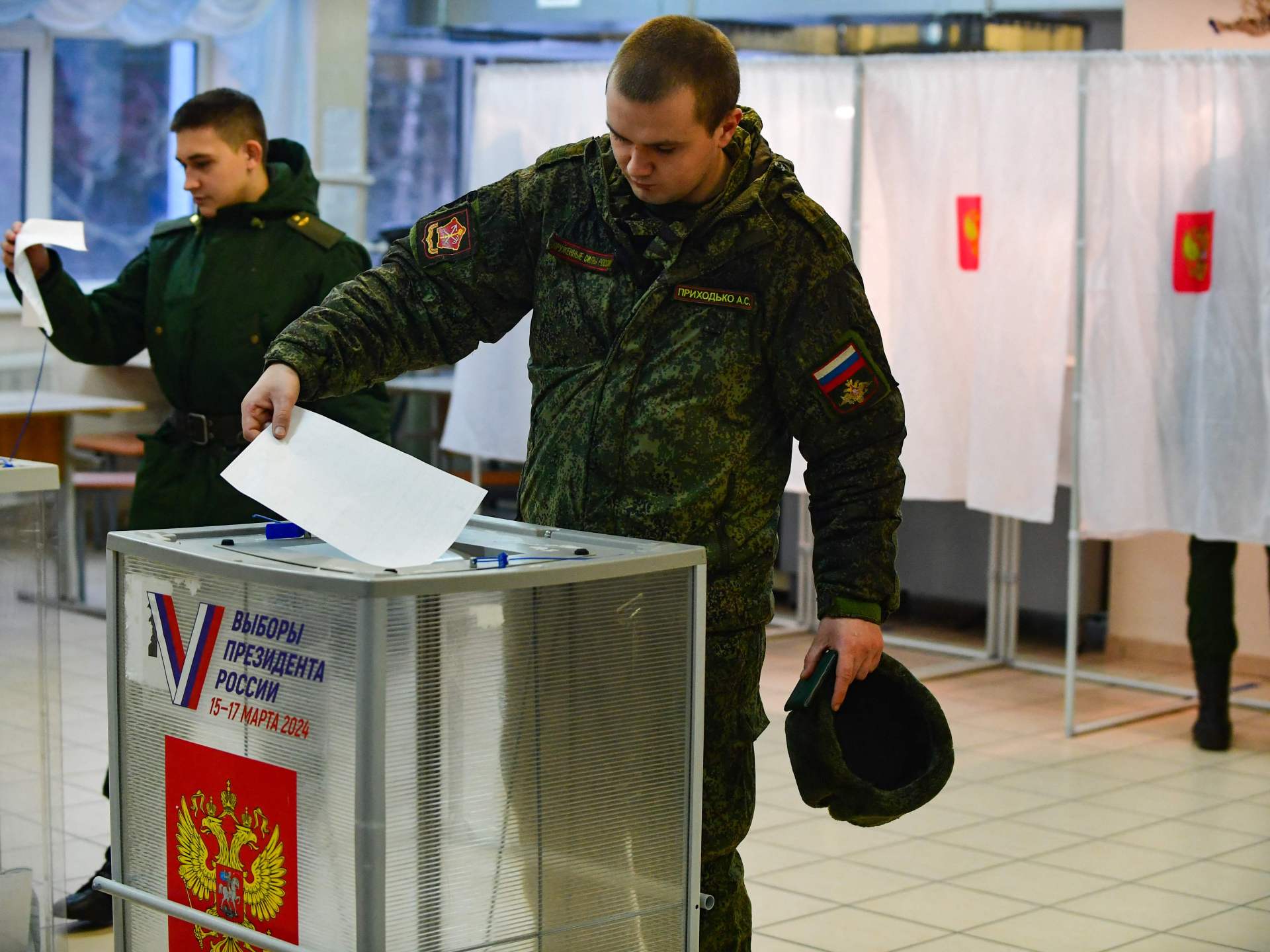Voting operations began on Friday morning and will continue for 3 days (French)
Voting in the presidential elections began in Russia on Friday morning, and it is expected that the elections will result in Russian President Vladimir Putin winning a new term in the absence of actual opposition, at a time when Ukraine is intensifying its cross-border attacks.
Residents of the Russian Far East began casting their votes, and the first polling stations opened today at eight in the morning local time in the Kamchatka Peninsula and in Tokotka in the Russian Far East. Voting operations will continue throughout Russia and the Ukrainian regions that Moscow annexed over a period of 3 days.
Due to the time difference, residents of the Far East began voting while residents of the western part of the country, which includes 11 time zones, were preparing for bed.
Putin had sent a speech - yesterday, Thursday - in which he urged his country's citizens to participate in the voting processes to express their patriotism, reminding them of the challenges that Russia is going through in light of the war.
Four candidates are competing in the Russian presidential elections, and Putin (72 years old), who has been in power for more than two decades, is the most likely candidate to win the Russian presidential elections in the absence of any serious opposition to him.
Observers expect that the elections will lead to Putin remaining in power for another 6 years, that is, until 2030.
Putin can also run for another term after that thanks to a constitutional review that took place in 2020, allowing him to remain in the presidential seat until 2036.
Residents of the East began voting, while residents of the Western part of the country, which includes 11 time zones, were preparing for bed (French)
Criticisms
Voting in the presidential elections will take place in 4 regions of Ukraine that Moscow controlled last year, in addition to the Crimean Peninsula, which Moscow announced its annexation in 2014.
Election officials in the Ukrainian city of Mariupol, which is under the control of Russian forces, set up improvised polling stations on Thursday using tables in the street.
The United States criticized the holding of voting operations in Ukrainian regions, and denounced what it described as "organized sham elections in the occupied Ukrainian territories."
For its part, the Ukrainian Ministry of Foreign Affairs called for the rejection of the result of this vote, which it described as a "farce."
The widow of the late Russian opposition figure Alexei Navalny also called on Russians to protest by voting for any of the candidates except Putin.
She urged opposition supporters to go to the polling stations next Sunday at two o'clock local time, to protest and show the size of the opposition.
The Russian opposition's calls to protest were met with warnings from the Moscow Public Prosecution, which confirmed yesterday, Thursday, that any form of protest is "punishable by law."
Voting operations include 4 Ukrainian regions controlled by Russia, in addition to the Crimean Peninsula (French)
Threats
In a related context, Russia's ambassador to the United States, Anatoly Antonov, said yesterday, Thursday, that his embassy had received a number of threats related to the Russian presidential elections.
Russian news agencies quoted Antonov as saying in a statement he made to state television, "We receive a large number of provocative calls and threats."
He continued, "We know that there are plans to carry out anti-Russian actions around our embassies and consulates, and there will be attempts to enter our embassy. Not to disrupt the elections, because that will not succeed, but to make things more difficult and spoil our mood."
Russian Minister of Digital Development Maksut Shadiev made statements to the media - yesterday, Thursday - in which he said that he expected Russia to be exposed to large-scale hacking attacks targeting the infrastructure of the voting system during the presidential elections.
Ukrainian forces have escalated their attacks on Russian border areas in recent weeks (French)
Ukrainian escalation
The Russian presidential elections are taking place at a time when Ukraine is escalating pressure on the Russian border areas, as Kiev has intensified its targeting of Russian border towns and Russian forces penetrating Ukraine with drones over the past three days.
The Russian National Guard announced on Thursday that it - along with the army and border guards - repelled a Ukrainian attack near a Russian town in the Kursk region on the border with Ukraine.
Last Tuesday, the town witnessed an attack launched by Ukrainian units claiming to be composed of Russians opposed to the Kremlin, and Moscow confirmed at the time that the attackers had been eliminated.
Yesterday, Thursday, a group calling itself the "Russian Freedom Corps" pledged to continue its attacks until "the liberation of the two Russian regions" Belgorod and Kursk. This group had previously launched previous attacks during which it penetrated into Russian territory.
Ukrainian forces intensified their attacks with marches in the Russian border areas, as well as hundreds of kilometers from the confrontation front.
The Ukrainian attacks were focused on Belgorod, the most recent of which was yesterday, Thursday, when an attack by Ukrainian marches resulted in the killing of two civilians and the injury of about 19 others, according to what the region’s governor announced.
Source: Al Jazeera + agencies

